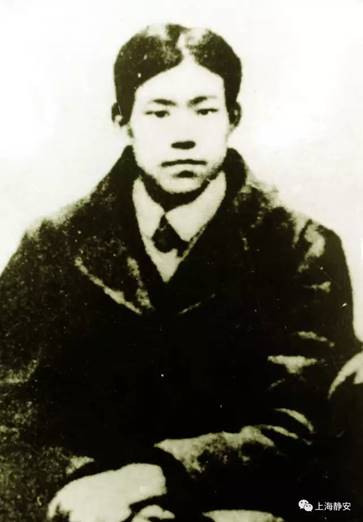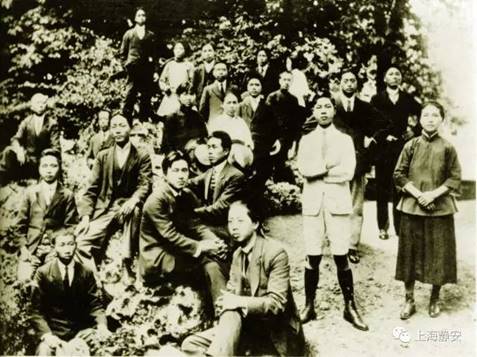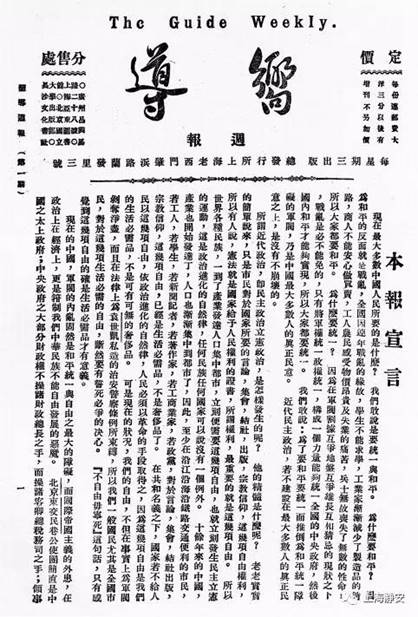He Has Done All a Communist Should Do
Released on:2017-09-20
Views:
In 1920, in a shabby middle school dormitory in Montargis of France, a handsome boy, dressed in old and thin clothes and with serious asthma, looked up in the French dictionary while learning about various French booklets about Marxism. He thought carefully about each word and sentence, and he was lost in thought sometimes and raised his arms and shouted now and then...
He was Cai Hesen, a man born in Shungfeng County, Xiangxiang City, Hunan Province. He was 25 when he went to France on the work-study program. He was supposed to inherit the family business of running the “Yongfeng Hot Pepper Sauce” and live a not rich but stable life. However, Cai chose a road full of sufferings.

Cai Hesen
Early in the Xinhai Revolution period, Cai admired Sun Yat-sen for his revolutionary spirit of unswervingly saving the country and the people in spite of the hardship, and regarded him as his model. Cai became the first in his school to cut the barid. Since then, he gradually knew that only revolution could solve the problems. As he deepened his theoretic learning and social practice, his desire for pursuing the truth became more urgent.
Leaving his hometown at the riverside of Lianshui River, Cai had a broader world. He studied at the First Normal School of Changsha, founded the New People's Study Society, organized the work-study program to France, and boarded on the “Antuolaipeng” cruise ship of Les Messageries Maritimes to go to France on December 25, 1919. He suffered a lot and was firm in mind all the way.

In July 1920, members of the New People's Study Society took a group picture at Montargis. The person at second right of back row was Cai Hesen.
During his two years of study-work in France, Cai sought knowledge eagerly and perseveringly. As an “extreme Marxist”, Cai firmly believed that “only socialism can save China” and suggested “the founding of the CPC” for the first time. In his letter to Mao Zedong, Cai wrote that in order to develop the revolution of China, the first thing was to found a party- the CPC, which must be a revolutionary party of the proletarian and be the “pioneering team and fighting group” of the proletarian. He was the first to hold up the banner of “the CPC” and clearly pointed out that the party was the organizer and leader of all the mass movement, and it must be rooted in factories, rural areas and schools. After receiving the letter, Mao Zedong was very excited and replied that “your letter provides a keen insight and I can’t agree more.” As a theorist and pathfinder of China’s revolution, Cai always kept the motherland in mind even though he was abroad, and pointed out a bright road for the revolution of China as a lightening in the dark sky.
After returning back to China, Cai held important post inside the CPC. From the second to the sixth National Congress of CPC, Cai was elected as the Member of the Central Committee of CPC. On the Fifth and Sixth National Congress of CPC, he was elected as the Member of the Central Political Bureau. He changed from a theorist of Marxism to a leader of China’s revolution. He realized that all the social problems in China originated from imperialism and openly put forward the slogan of “defeat the international imperialism” on the No. 9 issue of The Pioneer. As a backbone force on the revolutionary front, Cai worked extremely hard. But the disaster befell quietly at this time.

On September 13, 1922, the Guide Weekly, a publication of the Central Committee of the CPC, was founded with Cai Hesen as the chief editor. The picture above was the “Declaration of the Newspaper” published on the first issue by Cai Hesen.
On June 10, 1931, the sailors in Hong Kong held an important meeting. The Provincial Party Committee of Guangdong thought there might be detectives and spies in this kind of mass meeting, so Cai was not arranged to attend the meeting. However, Cai said “if we want to carry out revolution, we should go where we are needed and couldn’t care about one’s own safety only.” At eleven o’clock in the morning, he decided to attend the meeting despite being strongly advised against doing so by many comrades in the party. Before he left, he told his wife that “I will definitely come back before 1 o’clock in the afternoon. I am arrested if I don’t.” A saying turned out to be a prophecy. No one had predicted that this was the last word left to his family. He was arrested by the spies waiting there early as soon as he arrived at the meeting place. In the prison, Cai was tortured savagely, but he didn’t yield. Cai was beaten black and blue by the Kuomintang because they wanted to force him to surrender and get what they needed. However, the reactionary had chosen a wrong rival. In front of them was not a coward with shallow thought and fragile will but a long-tested and firm proletarian revolutionist. The cruelty of the enemies firmed his resolution of overturning the ruling of the revolutionary. The fellow sufferers in the prison were heart-struck when they saw Cai was cruelly tortured by the enemies, but Cai wrote poems to encourage them on the contrary. The enemies were at their wit’s end and then savagely fixed his arms and legs on the wall with iron nails and stabbed his chest with bayonets again and again. Therefore, Cai died a glorious death at the age of 36.
The martyrs are immortal and a noble spirit will never perish. In order to pursue freedom and equality, and realize the dream characterized by people’s happiness, the liberation of nation, and the prosperity of the country, and for the sake of glorious communism course, Cai practiced with his life the lines “keep loyalty in heart and be a man with noble spirit” which he wrote at his youth. He presented the oath of a revolutionist with a lifetime of revolutionary actions, and the glorious revolutionary spirit he showed before being executed could enlighten the apathetic. Mao Zedong once said that “Comrade Cai Hesen has done all a Communist should do.” Deng Xiaoping also said that “Comrade Cai Hesen is an outstanding leader in the early period of the CPC and he has made great contribution to the revolution of China. Chinese people always remember him.”
(Source: Site Memorial of the Second National Congress of CPC)